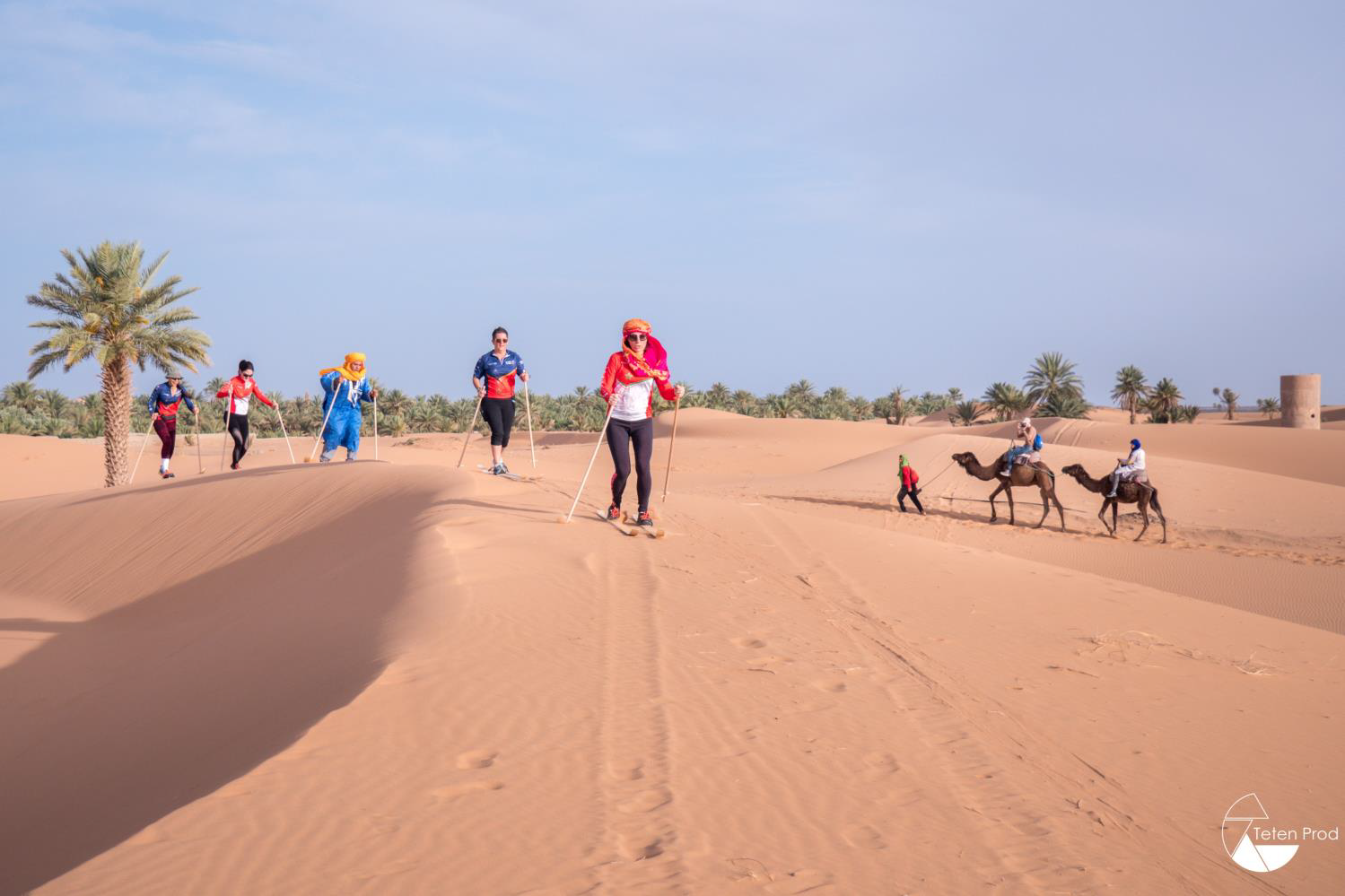LONDON – Agricultural cooperation, water management, and female empowerment are the main objectives of the XCSS Climate Can’t Wait project, scheduled to take place in Kazakhstan next year, said Estelle Peyen, President of the XCSS – Cross Country Skiing Sand Association and the project’s director, in an interview with The Astana Times.

Estelle Peyen. Photo credit: Peyen’s personal archive.
“Incredible development prospects in tourism, innovation, and research, the country’s location at the crossroads of the new Silk Road, its multiethnic society and immense natural heritage are the key drivers to carry out the project in Kazakhstan,” said Peyen.
With the purpose of raising awareness and pushing for climate action, the project heightens public interest in sports by offering the unique practice of cross-country skiing on sand or on substrates other than snow in arid areas instead of skiing on artificial snow in air-conditioned spaces.
According to Peyen, the project’s third edition is planned for June next year, preliminary in the south of Kazakhstan.

The project’s first edition was held in the Moroccan Sahara in 2022. Photo credit: Peyen’s personal archive.
“We want to promote ecotourism or agrotourism, a new form of sustainable tourism, which contributes to restoration of natural environments through fighting desertification and land degradation, curbing rural exodus, valuing traditional heritage and knowledge carried by women. We want to demonstrate that remote areas can be a source of creativity, building innovative and respectful practices. It is necessary to highlight their beneficial opportunities to embark on the path of adaptation to climate change,” said Peyen.
The initiative is part of the United Nations Decade on Ecosystem Restoration aimed at halting the degradation of ecosystems from 2021 through 2030. Seventeen Sustainable Development Goals (SDGs), the United Nations’ call to action to end poverty and protect the planet, are set to be achieved by that time.
The focus will be on water management, as the domestic and regional water agenda in Central Asia requires a rational and careful approach. Citing the example of the Aral Sea, Peyen noted that “water resources are now significantly impacted by the causes and effects of climate change.”
The project plans to ensure the exchange of irrigation and integration of modern technologies, including the khettara method, an old underground irrigation system used in the deserts.
For Peyen, climate actions on the ground in deserts and drylands should involve local communities to attract the attention and support of the maximum number of people.
“Local communities are asked beforehand for their consent to accept our visit, as well as to cooperate with other rural and urban communities on agricultural and craft knowledge and sustainability practices. We also consider the ecosystems, specificities, constraints, customs, and lifestyle,” she said.
“Together with us, local citizens discuss a week-long program of events and our sports tourist route. Activities include craft and cooking masterclasses, agricultural work, and maintenance of village buildings. Residents can propose their own ideas as well,” she added.
To define the types of partnerships, the project members consult the local population to identify their interests and needs, including drinking water availability and quality, ecologically sustainable and socially equitable agricultural practices, soil salinity and drought, level of climate awareness and environmental education.
Peyen shared the details of the project’s next edition, scheduled for November 2023 in the village of Hassilabied in Morocco, where local farmers will be offered two days of training.
“Our agroecological practices will include valorization of organic waste fractions through soil mulching, field workshops on setting up and managing a greenhouse, giving indications to obtain an organic certification. With a focus on women’s crafts, we will also provide a unique technique of Saharawi people – a weaving basketry from date palm, which is listed as a United Nations Educational, Scientific and Cultural Organization (UNESCO) heritage site,” she said.
A month ago, Peyen presented her project at the Astana International Forum (AIF) panel session, which focused on the problem of water scarcity, where she raised the importance of combining innovation with traditional ancestral knowledge to promote sustainable development and adaptability to ongoing and future challenges.

